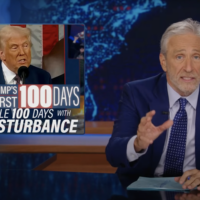Everyone wants to write a book, or to say they have written a book. Publishing a book is still an honor, a point of pride—but like pretty much everything else, it’s also dependent upon a capitalist business model. And the financial side of publishing can be opaque, unfair, and downright contradictory. Combined with the distinctly American habit of not wanting to sully talk of artistry with talk of money, this means that many people who want to make writing their full-time career have no idea how the money part of writing actually works. In this TED talk I will answer some of the most common questions I get as a literary agent about the money side of things. I will try not to make it too depressing.
Note: this information is based on the American traditional book market, and won’t necessarily apply to other countries, or to self-publishing.
How much money am I going to get for my very, very good book?
This is the single most common question I get from my clients, and other people when they find out I’m a literary agent, and I respond with a very infuriating “$5,000 to $50,000.” Most times, though, I’m right! I have sold books for both more and less than those amounts, and to be fair, there are many genres where I can estimate a much smaller spread. But the total advance depends on so many things, including the quality of the work, the sales potential of the work (not the same thing!), the author’s platform and/or previous sales, the zeitgeist, the “market,” how many other editors are interested (if any), how similar books have performed for the publisher and/or other publishers, and many, many other things. Because there are so many factors, there’s no “average” book advance. $1,000 is rare. $1,000,000 is also rare.
What does it mean when you say “advance?”
Because there are so many factors, there’s no ‘average’ book advance.
A book deal is not patronage for your sheer talent, or even direct compensation for the hours you have toiled to create the book. It is an advance against what the publisher thinks your book will earn. The publisher takes a financial risk on your work. If your book doesn’t sell well, you don’t have to pay it back—the publisher assumes that risk. But you do have to sell that much in books to earn anything more on top of that.
Oh, is that what royalties are?
Yes, royalties are what you get when you “earn out” your advance. You earn a percentage of each book sale, and that adds up against your total advance. When you earn more than that, you get royalties. Here’s how that works. (Math incoming.)
A common royalty rate is 10% of the cover price of the book. If your book retails for $25, then you earn $2.50 a book. (There are different rates for different formats and you can negotiate higher royalty rates, to a point.) If you get a $10,000 advance, you have to sell 4,000 copies of the book to earn any more money (10000/2.5 = 4000). There are many books that do not sell 4,000 copies and plenty of books that do.
When can I quit my job?
You probably can’t! You’ll see why soon.
When will I actually get money?
Your advance will be broken up into several payments, anywhere from two to four depending on how big your advance is, how you negotiate, etc.. First, you’ll get a portion after you sign the contract. Having your agent review and vet your contract, signing it, getting it countersigned by the publisher and waiting for the publisher to send your check can take several months. Then you’ll likely get a portion when you are finished writing AND editing, editing again, and editing some more. This could also be months after your contractual delivery date, which could be six months to a year after you sign the contract. You may then get another portion when the book is published, which is almost always about a year after you deliver the manuscript. Even if you got an $100,000 advance, you might get $33,333 when you sign the contract, but after agent commissions and taxes (YMMV), you’ll probably net a little less than $20,000, and you might not get another check for a year.
Sooooo when do royalties checks come?
Royalties are calculated and paid out every six months, but according to a fixed schedule that differs from publisher to publisher. For example, one major publisher sends their royalties out in April and October. The April statement and money (if any) covers books sold from July to December of the previous year. The October statement and payment covers sales made from January to June. Yep! Statements are about 4 months old when you get them.
You have got to be kidding me.
Nope! It’s true! Publishing is a consignment business. That means a wonderful place like Books Are Magic can order, say, 1,000 copies of the fantastic novel The Ten Thousand Doors of January by Alix E. Harrow (just to pick a random book with a great agent!), and if they only sell 955 of them, after a while, they can send the remaining 45 back to the publisher. These are called “returns” (for obvious reasons), and publishers have to wait for them to come back before they pay the author royalties, or they’ll overpay everyone all the time and go bankrupt.
Oh, is that why I can’t find out how many books I sold hour by hour, like how you can see website traffic and stuff?
Yes! There isn’t a single book-tracking entity that reports all books sales from every retail outlet and makes that available to everyone. There is something called BookScan, but it’s imperfect at best and infuriating at worst (getting into why would be a whole other article). The publisher can see the sales of their own books, but they don’t (yet, fingers crossed) have robust and detailed author portals to share that kind of information.
If I don’t earn out my advance, will I ever sell another book?
Earning out does not dictate whether you’ll sell another book, for better and worse. Publishers do look at that, and earning out, or getting respectably close to it, does factor into their decision-making, but it also matters if your book is good, has sales potential (not the same thing!), how your platform has improved (or not), the zeitgeist, the “market,” how similar books have performed, etc., you get the picture. Once you have a book and a sales track record publishers will consider that in making future decisions about your work, but it’s not earn out or GTFO.
Okay, but can’t I just write 16 books at the same time and then make a living wage?
You probably can’t. There are clauses in a book contract that prevent you from directly competing with your own work and something called an option clause that gives your publisher dibs on your next book, but only after you’re done with the first. It’s complicated. That’s why you probably want an agent (but of course I’m biased). There’s good reason for this, though. If you have a dedicated fanbase, they’ll only be willing or able to buy one of your books at a time. And your fanbase, such as it is, is your strongest market.
Publishing is not a meritocracy. ‘Good’ books don’t get the most money.
But what about that person over there? THEY got a huge advance and my book is way better than theirs.
I know, right? It sucks. But publishing is not a meritocracy. “Good” books don’t get the most money. Besides, what you think is great, someone else thinks is crap. There’s a book out there for every reader, and that’s how it should be, in my opinion.
Shouldn’t I just write some crappy **~~*commercial**~~* book and cash in?
If you want to? But “cashing in” and “book publishing” don’t usually go hand in hand. If you’ve gotten this far, you can probably see why.
Why does anyone write anyway?
Because people, writers, readers, interior designers, love books. Books are the best. There should always be more books. You just aren’t going to get rich from them.
The post An Agent Explains the Ins and Outs of Book Deals appeared first on Electric Literature.











